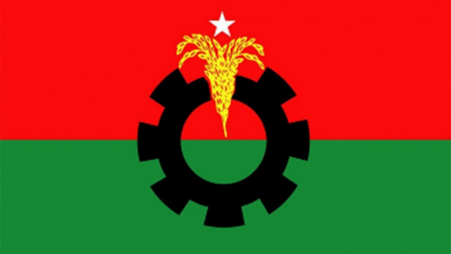BNP skeptical of AL's invitation to polls-time govt, terms it a 'bait'
The BNP stands firm on its call for a neutral caretaker government for the upcoming 12th parliamentary election

The BNP has rejected the recent hint by Awami League General Secretary Obaidul Quader on inviting the BNP to the election-time government. The main opposition political force in the country remains steadfast in its pursuit of a neutral caretaker government for the upcoming national election.
On 7 May this year, the Awami League general secretary stated that there would be no issue with inviting the Bangladesh Nationalist Party (BNP) to the election-time government if the party participates in the upcoming 12th general election. He also noted that if there is any opportunity to grant the BNP concessions within the constitutional framework, it would be provided.
However, the BNP is sceptical of the offer, believing it to be a strategy employed by the ruling party to weaken the BNP-led alliance in the current anti-government movement and to potentially persuade other opposition parties to participate in the national election.
In response to Quader's comments, BNP Secretary General Mirza Fakhrul Islam Alamgir told The Business Standard that it is every person and party's constitutional right to decide whether or not to participate in any election, and the Awami League has no authority to extend invitations.
The BNP leader also stressed that the BNP's ultimate goal is a non-partisan neutral caretaker government, which is crucial for a credible election.
Other senior leaders of the BNP also agreed with Fakhrul's position, expressing their suspicion of the Awami League's invitation for the party to be part of the election-time government.
Some leaders suggest that while the BNP may not fall for the alleged bait, the ruling party could attempt to lure other parties which have demonstrated solidarity with the BNP during the ongoing anti-government movement away from it by offering them one or two ministries.
Selima Rahman, a member of the BNP Standing Committee, has meanwhile said that her party will not take part in the next general election without an election-time caretaker government being constituted to supervise the voting.
For her part, political scientist Dilara Chowdhury told The Business Standard that these statements of the Awami League, regarding the forthcoming election, no longer have credibility.
"Because the Awami League conducted the last two general elections as it wished, now the opposition parties do not believe its words anymore. It does not seem that the ruling party will be able to sway the opposition, including the BNP, with these tantalising statements," she observed.
Dilara Chowdhury also said that if the small parties get greedy and step into this trap set by the government, they will suffer a lot, and they will lose credibility and acceptance before the people."
Awami League leaders have been saying that there is no provision for a caretaker government or an interim government or an election-time government in the constitution. The incumbent elected government will perform its duties as usual during election time and will hand over power to the next elected government, they say.
Speaking on the subject, constitutional expert Shahdeen Malik, however, explained that while the constitution does not provide for reducing the size of the government during elections, the Prime Minister has the authority to do so if she chooses. In fact, she can also increase the size of the government if she deems it necessary, without violating the constitution, he added.
In the past, the ruling Awami League offered some ministries, including the Ministry of Home Affairs, to the BNP in the 2014 election-time government, but the BNP chose to boycott the election.
In 2018, the BNP demanded a caretaker government but ultimately participated in the election with the government's assurance of a fair election. However, after the election, the party accused the ruling party of vote rigging.
Since July 2022, the BNP has been carrying out a continuous movement to push for its 10-point charter of demands, which includes the dissolution of the current parliament, the resignation of the incumbent government, and the formation of a non-partisan election-time government.
The party claims that 17 of its leaders and activists have been killed and many more were injured in various districts of the country, including the capital, during the ongoing movement.
According to the constitution, the 12th national election will take place in the first week of December this year. As such, the election schedule is expected to be announced in September or October.
There are also rumours within the BNP that the government may announce an early election schedule immediately after the presentation of the national budget in June if it is convenient for the ruling party. ***



 Keep updated, follow The Business Standard's Google news channel
Keep updated, follow The Business Standard's Google news channel















